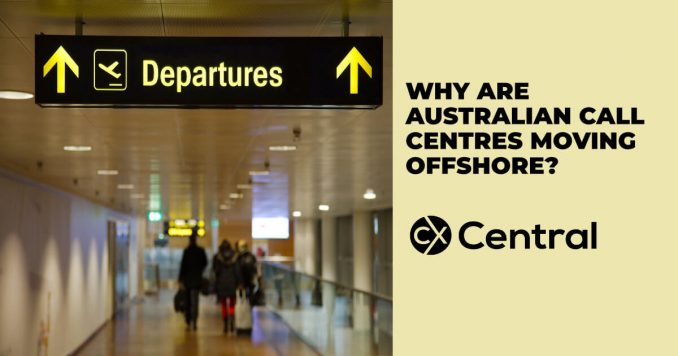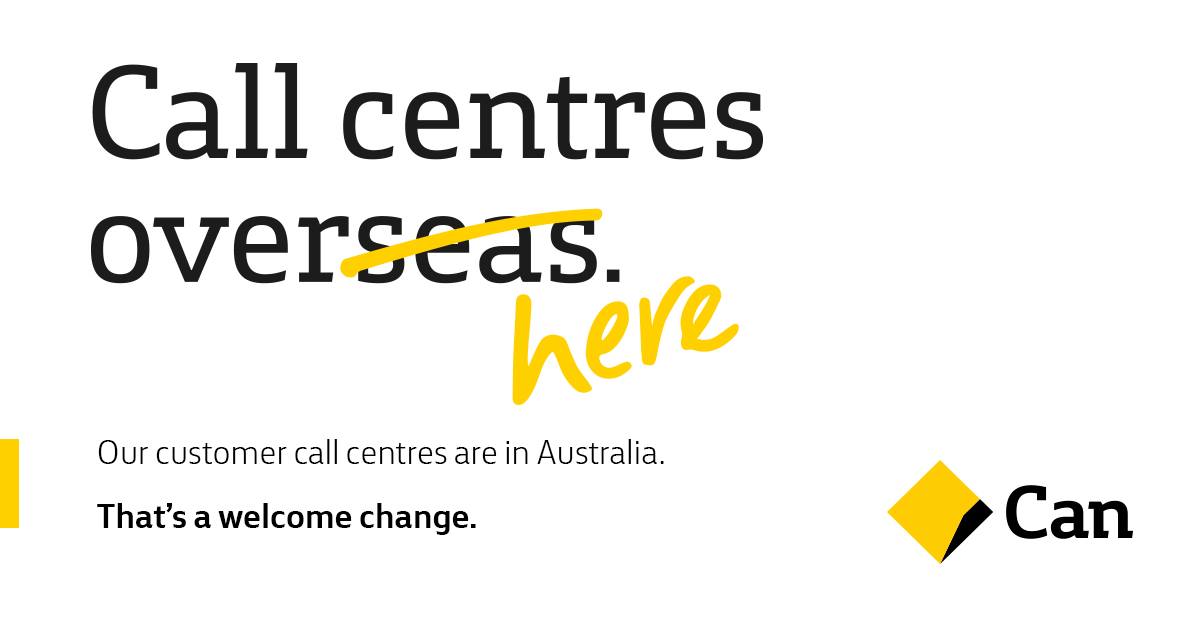
The truth about Australian call centres moving offshore
It seemed for a while every week we would be hearing about more Australian call centres moving offshore.
When in late 2016 the Insurance Australia Group (IAG) announced their decision to move their call centres offshore there was a fierce backlash from angry customers.
With IAG including insurance brands such as NRMA, CGU and RACV, it wasn’t difficult to find just how angry their customers were about the decision.
But it wasn’t just customers.
One of the IAG’s NRMA call centre agents whose job was impacted was so angry they started a petition on Change.org that attracted over 19,700 signatures.
And after reading some of the comments, it clearly shows the level of frustrations a large section of our community are having when dealing with someone on the phone who isn’t from Australia.
Is it a racist thing?
I firmly believe it’s not.
Whilst there can (and are) numerous reasons for the frustrations (e.g. offshore agents not having the same access to systems, cultural differences, forced to follow scripts etc.) the #1 frustration typically stems from not being able to understand the agent and that applies to whether they are from the Philippines, India, South Africa or even New Zealand.
So if customers don’t like it, why do companies keep sending call centre jobs overseas?
Let’s be honest, Australian call centres moving offshore are primarily motivated by one thing.
Cost savings.
Salaries account for approximately 80% of the running costs for a contact centre so anywhere you can find cheaper labour is going to have a big overall impact on your costs.
The minimum annual award salary for a full-time contact centre agent (working 38 hours) in Australia with no penalty rates is $41,258 (Jan 2019) and that’s assuming you can find someone willing to work for it.
In an effort to attract the best call centre talent, many contact centres in Australia have salaries well in excess of $50,000 compared to the average salary of around $6,000 AUD a customer service agent working in the Philippines would receive.
Based on a 30 seat contact centre paying award wages that’s an annual saving of over $1.3 Million for every year of operation.
So for call centres with hundreds of seats, it’s not hard to see why businesses are attracted to the proposition of sending call centre jobs offshore.
So while it might make business owners happy, not all customers share the same excitement.
By law, all mid to large size contact centres in the Philippines must have a doctor or nurse on-site, in part due to the acoustic shock injuries caused by angry and screaming customers hurling abuse the Philippines agents (guys seriously as frustrating as it might be, please don’t take your anger out on the call centre worker who is just trying to help you as best they can..).
Offshore options for Australian businesses also now extend beyond the Philippines with other English speaking countries making a play for the lucrative call centre industry market.
South Africa, Malaysia and Fiji are all investing significantly in attracting international businesses looking to offer the world another cheap alternative for contact centre labour.
Recently Congo was in the news promoting its call centre capabilities and Egypt is also emerging as a new destination for Australian businesses.
Why competition is good
In an age where the world seems to get smaller by the minute and products can be sourced from all over the world, progressive organisations are starting to realise however that perhaps the customer experience, not the product, is their key differentiator in the marketplace.
In fact, 89% of businesses now expect to compete on customer experience – not price or product.
Take the telecommunications sector as a current example.
Over the past few years, Telstra has moved thousands of their call centre roles to the Philippines and based on my own personal experience, it’s an experience that is largely not enjoyable.
But if you want the best network, what choice have you got?
With Vodafone investing millions in upgrading their network recently, however, the customer landscape is beginning to change…
Looking at the Telecommunications Industry Ombudsman (TIO) annual report:
- 49.2% of all complaints received to the TIO are about Telstra
- The total number of complaints received about Telstra increased by 7.7% and Optus by 35% from FY17
- Vodafone, with onshore call centres, received a decrease of 8.7% and represent only 5.8% of all complaints, its third consecutive year of decline.
Vodafone’s General Manager for Customer Care Matt Paterson said in August 2014 “Australian-based customer service sets us apart from our competitors.
“We’re putting service ahead of profits – that’s what our customers want. They want to be able to speak to an Australian, and they want to help create jobs in Australia. That’s important to us too”.”
So if the network quality was equal, and you had a choice of providers would you still be with Telstra?
Studies have shown that 86% of consumers will pay up to 25% more for a better customer experience so if Vodafone just matched pricing (let alone beat it) it would suggest they are in for a significant shift in market share.
Not surprisingly, in 2019 expect to hear confirmation that Telstra will be moving thousands of contact centre jobs back from the Philippines to Australia.
Can businesses afford to keep their call centres in Australia?
The big challenge for Australian businesses is to determine if they can afford to give customers what they want – a local customer experience or a cheaper product.
For those investing in the customer experience, there is some subtle advertising starting to permeate through where organisations are proudly advertising their Australian call centre as a point of difference.
Bankwest, as an example, promote their “Australian based contact centre” as a point of difference to their competitors.

Personally to the brands that have Australian based call centres I say don’t be subtle – if you are investing in a higher cost of running an Australian call centre and research suggests that customers clearly prefer talking to locals, shout it from the bloody rooftop!
From the hundreds of thousands of call centre agents in Australia, we’d love to hear your support.
If some of our local contact centre agents had a dollar for every time they heard “oh thank god you’re in Australia” they could probably afford to retire!
It’s starting to change…
In December 2017 it looks like the message is finally getting through!
Commonwealth Bank are now actively promoting their Australian based call centres.
In fact, with a nationwide advertising campaign with television, radio, print media, billboard and of course online you’d be hard-pressed not to miss it!
According to the Commonwealth Bank’s research, nine in ten Australians prefer local call centres so the decision to keep their call centres here is clearly a strategic decision designed to improve customer satisfaction.

But it’s not just the active promotion of onshore call centres that is changing.
In recent years the Australian Dollar has lost over 30% of it’s value to the USD, the currency in which the majority of Philippines outsourcers invoice.
This, of course, has made outsourcing your call centre to the Philippines 30% more expensive – a big shift in the value proposition.
Is there a trend emerging?
For the Australian local call centre outsourcing community, it’s an interesting time.
We’ve seen a few large call centre outsourcers permanently closed their doors (and with it hundreds of jobs were lost) however this has been offset somewhat by two global call centre outsourcers entering the local market and claiming business is booming.
And in addition to the threat of jobs moving offshore, Chatbots, self-service and voice biometrics technology all pose a threat to the traditional call centre job as the requirements to speak to a live agent diminish.
This leaves the calls that do require a human touch to be far more complex, and that’s changing the skills and requirements of the traditional contact centre agent.
With the contact centre increasingly becoming the front door (or only door!) for a number of businesses the contact centre agent is often the sole representative of your business, the only point in which a human connection is made.
And that connection is often at the most critical point of the customer relationship when something isn’t quite going to plan.
I’m no rocket scientist, but you’d probably want to make sure that experience is a good one right?




